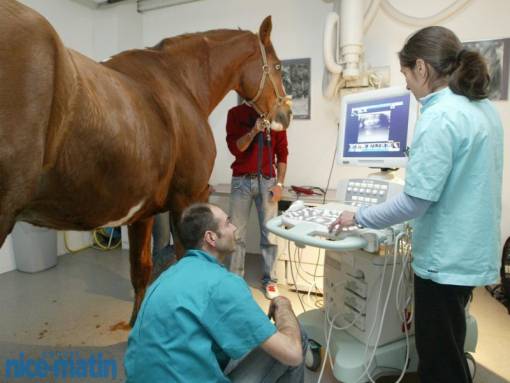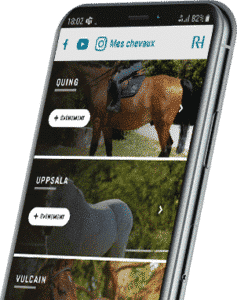Also known as a veterinary secretary-assistant, the veterinary health auxiliary (VHA) works alongside the veterinary practice or clinic in all areas of animal health, and in particular equine medicine.

The duties of the veterinary health auxiliary with horses
The V.H.A. profession is multifaceted, as far as the assistant is a collaborator of the veterinarian, involved in all the tasks necessary for the smooth running of the veterinary clinic.
Their working time is usually divided between 3 categories of work:
The technical role of the veterinary health assistant with horses
The V.H.A. assists the veterinarian during consultations and when caring for hospitalized horses. He or she may be called upon to help restrain horses, carry out certain examinations (X-rays, ultrasounds, etc.), and provide light care such as dressings, bandages, etc. He or she is usually responsible for the comfort of hospitalized horses (feeding, bedding, grooming, etc.), and may also assist the veterinarian during surgical procedures, acting as a nurse and/or anesthesiologist’s assistant.
The administrative role of the veterinary health auxiliary for owners of hospitalized horses
The V.A.H. is most often involved in the clinic’s administrative management: keeping customer or animal files, invoicing, reminders, various correspondence.
The A.S.V. is always in direct contact with the public, providing part of the reception service, and must be able to communicate, on instructions, certain advice relating either to the follow-up of certain treatments, or to the delivery of products for hygiene, care, nutrition, etc…
The veterinary auxiliary’s maintenance role in the horse clinic
The V.H.A. is also involved in the general upkeep of the clinic: consultation room, examination equipment, surgical equipment.
How do I become a veterinary surgeon in the equestrian world?
You don’t have to be a qualified veterinary surgeon to work as an A.S.V. A certain number have been recruited by veterinarians who have trained their auxiliaries themselves. But with ever-increasing demands for high quality care, most A.S.V.s are now qualified, especially as a collective agreement governs the profession, and only those who have received appropriate training can progress.
A.S.V. training is organized on a two-year sandwich course, in the form of a qualification contract, with the student receiving general training, both administrative and technical, at school, alternating with paid training in the field, in practices or clinics. The advantage of this type of training is that, on graduation day, the student not only has the necessary theoretical knowledge, but also practical experience, making him or her immediately operational.
Interested in becoming a veterinary auxiliary? Find out more about its functions and the prerequisites needed to be able to exercise this profession, thanks to our complete job description on the subject.


